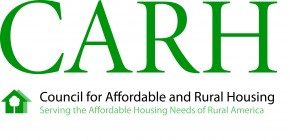- November 2022
- October 2022
- September 2022
- August 2022
- July 2022
- June 2022
- May 2022
- April 2022
- March 2022
- February 2022
- January 2022
- December 2021
- November 2021
- October 2021
- September 2021
- August 2021
- July 2021
- June 2021
- May 2021
- April 2021
- March 2021
- February 2021
- January 2021
- December 2020
- November 2020
- October 2020
- September 2020
- August 2020
- July 2020
- June 2020
- May 2020
- April 2020
- March 2020
- February 2020
- January 2020
- December 2019
- November 2019
- October 2019
- September 2019
- August 2019
- July 2019
- June 2019
- May 2019
- April 2019
- March 2019
- February 2019
- January 2019
- December 2018
- November 2018
- October 2018
- September 2018
- August 2018
- July 2018
- June 2018
- May 2018
- April 2018
- March 2018
- February 2018
- January 2018
- December 2017
- November 2017
- October 2017
- September 2017
- August 2017
- July 2017
- June 2017
- May 2017
- April 2017
- March 2017
- February 2017
- January 2017
- December 2016
- November 2016
- October 2016
- September 2016
- August 2016
- July 2016
- June 2016
- May 2016
- April 2016
- March 2016
- February 2016
- January 2016
- December 2015
- November 2015
- October 2015
- September 2015
- August 2015
- July 2015
- June 2015
- May 2015
- April 2015
- March 2015
- February 2015
- January 2015
- December 2014
- November 2014
- October 2014
- September 2014
- August 2014
- July 2014
- June 2014
- May 2014
- April 2014
- March 2014
- February 2014
- January 2014
Eviction Moratorium Ordered Through December 31, 2020
BROADCAST EMAIL – Regulatory Update
The Trump Administration, through the Centers for Disease Control and Prevention (CDC) last night issued a sweeping Agency Order (Order) preventing all residential landlords in the United States from evicting any resident for the duration of the COVID-19, at least until December 31, 2020. American Samoa is exempted because there have been no cases there. (9/4/2020 – UPDATE: Federal Register Notice.
This is an Order, not a regulation. It asserts rule making procedures do not apply. This Order does not displace more restrictive state and local prohibitions. The Order is issued under the CDC’s statutory authority to issue regulations for isolating sick individuals. Additionally, the Order uses the regulation promulgated under that law to “take such measures to prevent such spread of the diseases as he/she deems reasonably necessary, including inspection, fumigation, disinfection, sanitation, pest extermination, and destruction of animals or articles believed to be sources of infection.”
The Order does not preclude charging or collecting fees, penalties, or interest as a result of the failure to pay rent. While the Order is sweeping, it also allows evictions for criminal activities on the premises, threatening the health or safety of other residents, damaging property or violating other codes or contractual obligations.
Note, protected persons mean not only the tenant but any resident of a residential property who presents an unverified certification in the form attached to the Order that the person cannot pay the rent, cannot find government assistance, that eviction would likely render them homeless, and they are under certain income limits ($99,000 in 2020 ($198,000 if filing a joint tax return), were not required to report any income in 2019, or received a CARES Act Economic Impact Payment (stimulus check)).
The Order also states it will be enforced with criminal penalties, including fines and imprisonment for housing providers that do not comply.
The Order will become effective as of the date published in the Federal Register (scheduled for September 4th), unless it is extended, modified, or rescinded. It is similar in many respects to the provisions of the CARES Act.
As a reminder, Owners can apply to HUD for CARES Act funding not already spent. Click here for more information. Due to this latest action, it is important that CARH members continue to contact their members of Congress and ask that any legislation dealing with the coronavirus pandemic including funding for the United States Department of Agriculture’s Rural Development (RD) Section 521 program. We continue to ask for $309 million which would provide funding for both current RA residents as well as non-RA residents.
Please contact the CARH national office at carh@carh.org or 703-837-9001 should you have questions or concerns.





